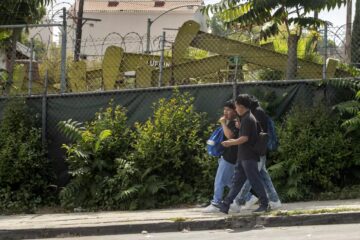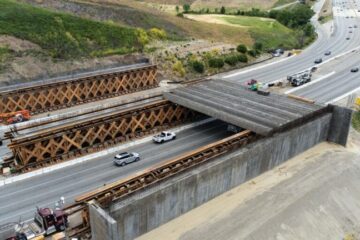Fire season fuels GOP push for more logging
The House votes to curb environmental reviews to accelerate timber cutting in national forests.
Source of this article: The Los Angeles Times, September 21, 2013
WASHINGTON — In response to fires that have ravaged the West this year, the House on Friday approved a bill that would expand logging in national forests despite a White House veto threat.
The measure, which would impose limits on environmental reviews to speed timber-cutting projects, was approved by the Republican-controlled House, 244-173, on a largely party-line vote.
The bill would more than double timber harvest levels nationwide to roughly 6 billion board feet of timber for sale each year, up from the average of 2.5 billion board feet sold annually in recent years.
It would significantly affect California with its 18 national forests that take in more than 20 million acres. About 5 million acres of California forest are suitable for harvest. Currently, about 22,000 acres are logged in the state, a number that would likely increase if the measure became law.
Called the “Restoring Healthy Forests for Healthy Communities Act,” the measure would authorize fuel reduction projects in areas identified as at risk of a fire. Projects could include livestock grazing and timber cutting.
A group of California Republicans won approval of an amendment that would waive judicial reviews on timber salvage projects resulting from any wildfires this year.
“If anyone doubts the necessity of this bill, let them come to my district where the Yosemite Rim fire has just incinerated 400 square miles of our precious forests,’’ said Rep. Tom McClintock (R-Granite Bay), whose district includes Yosemite National Park.
“As the board feet harvested out of these forests has declined, the acreage incinerated by forest fires has increased proportionately and contemporaneously,’’ he added. McClintock blamed “extremist environmental regulations’’ for driving down logging by more than 80% in the Sierras from the 1980s.
Republicans portrayed the bill as a jobs measure that would prop up the economies of rural counties, which would receive a fourth of the money from timber sales to help fund schools and other services.
Democrats said the bill would allow logging and road building in areas now without roads and sharply curtail public review of proposed timber-cutting projects.
Rep. Jared Huffman (D-San Rafael) called the measure “overreaching,’’ saying it would impose mandatory production quotas for timber.
“I wish our Republican friends were more serious about funding the Forest Service and its fuel load reduction programs,’’ he said in an interview. “They have slashed funding year after year, even as we’ve had more severe wildfires every year.’’
The expanded logging would probably occur in forests in the northern half of the state. There is no commercial logging in Angeles National Forest in the Los Angeles area. Logging is limited in San Bernardino National Forest to fuels reduction projects, according to a U.S. Forest Service spokesman. In Los Padres National Forest, few areas are suitable for timber harvesting, the spokesman added.
The National Wildlife Federation Action Fund warned that the bill would “prioritize cutting down trees above everything else — including the black bears and other wildlife that depend on forests for their food, shelter, and clean water to drink.’’
The 2013 wildfires have burned 4 million acres nationally, damaging or destroying 1,055 homes and costing the government about $1.4 billion. Though down from the average fire season, 256,895 acres were burned in the Rim fire, the third-largest blaze in California history.
The bill faces dim prospects in the Democratic-led Senate.
“Bills that undermine bedrock environmental laws or turn over large swaths of federal land to private ownership cannot pass the Senate or be signed into law by the president,’’ said Keith Chu, a spokesman for Sen. Ron Wyden (D-Ore.), chairman of the Senate Energy and Natural Resources Committee.
The measure follows a 2003 bill signed by President George W. Bush in the wake of devastating California fires that limited environmental and judicial reviews for brush removal and tree-cutting projects.



0 Comments